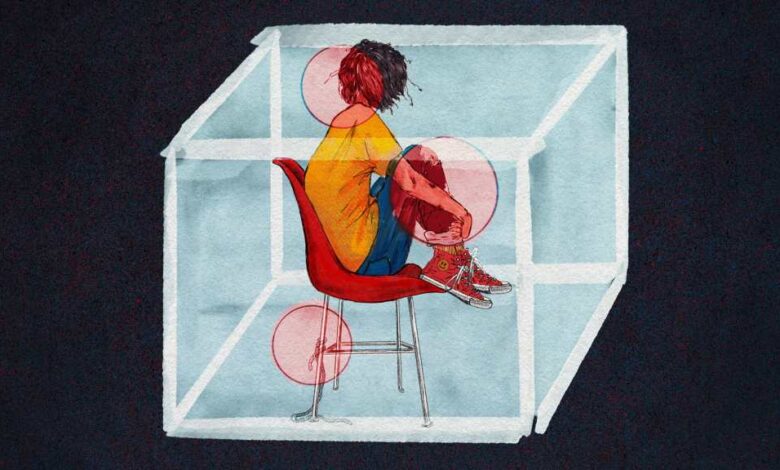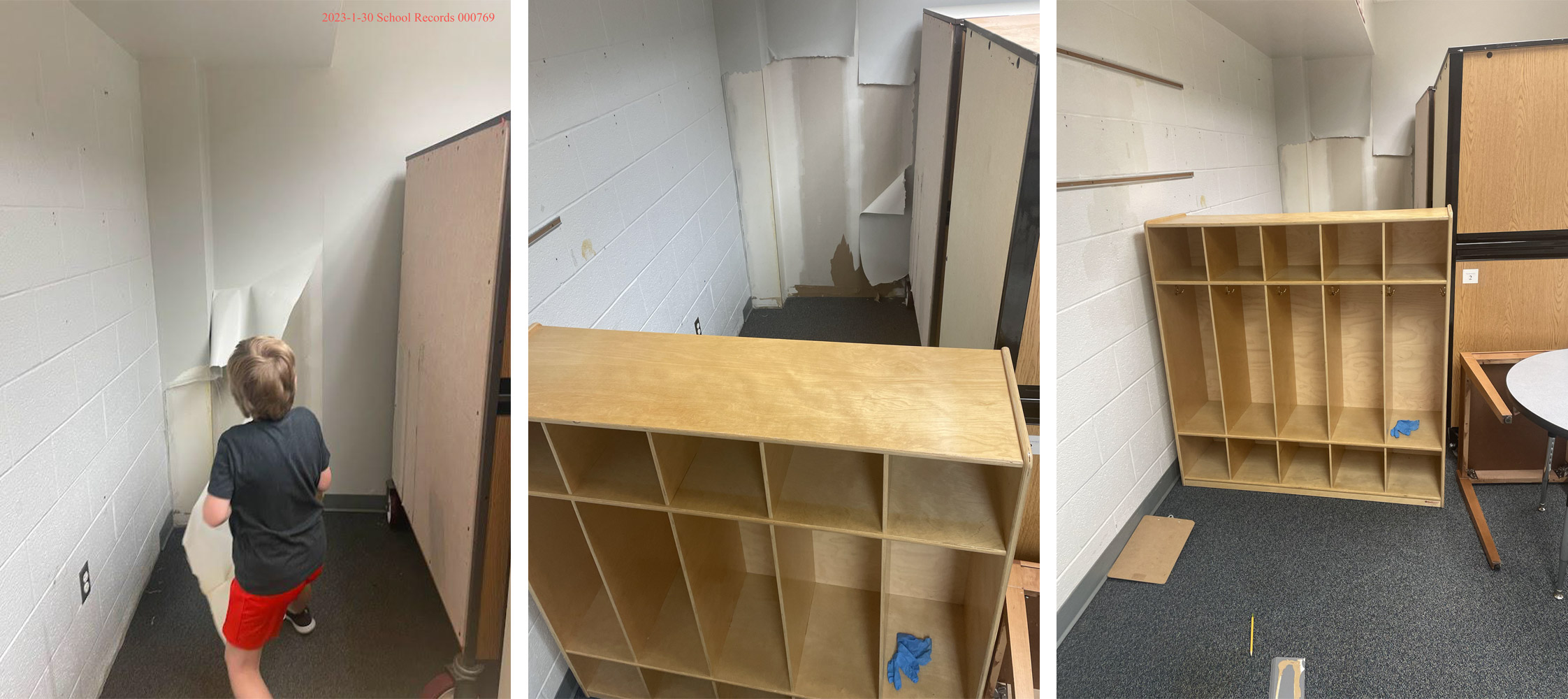Advocates Say a Practice Harms Disabled Children, Yet Congressional Action Is Stalled

In the photos, a 9-year-old boy with autism appears barricaded between cubbies and furniture stacked near the walls of a North Carolina classroom.
His mother, Erin McGrail, said her son was physically restrained at least 14 times while in third grade at Morrisville Elementary School. She said she learned details of his seclusion only after filing a due process complaint.
“I was furious the first time I saw them,” McGrail said of the photos. Her family reached a settlement last year with the Wake County Public School System. “They never told us how this was done. We had no idea.”
No federal law prohibits schools from restraining and secluding children. So a patchwork regulatory system operates across states, with little accountability and oversight, according to parents, lawmakers and advocates for people with disabilities.
Federal data obtained by KFF Health News show that each year, thousands of children — disproportionately those with disabilities and students of color — are secluded at school, often in windowless rooms or makeshift enclosures, as happened to McGrail’s son. In some cases they are physically prevented from moving by school employees, or put in handcuffs or other mechanical restraints.
And the numbers are almost certainly an undercount. While federal law requires school districts to tell the Education Department every time they restrain or seclude a student, Wake County Public Schools reported no instances of the practices for nearly a decade, according to civil rights data the department published. The district said it reported revised data to the federal government in 2022, which came after McGrail’s son was physically restrained at Morrisville Elementary.

“It is unconscionable there are thousands of students each year who are being put in solitary confinement, pinned to the ground, or strapped to a chair as punishment for misbehavior,” Sen. Chris Murphy (D-Conn.), who has repeatedly introduced legislation to restrict the practices, said in a statement. His bills have so far found little traction in Congress.
Since at least 2009, the Government Accountability Office has warned Congress that physical restraint and seclusion can be dangerous. In some cases, the GAO reported, children have been seriously injured or died. And nurses and pediatricians have warned the practices can escalate negative behaviors.
Catherine Lhamon, assistant secretary for the Office for Civil Rights at the Education Department, told KFF Health News that “imposing restraint on the student is traumatizing, period, and so imposing trauma on a student can exacerbate existing disabilities.”
Guy Stephens, executive director of the Alliance Against Seclusion and Restraint, a nonprofit advocacy group based in Maryland, said the legislation remains a non-starter with many Republican lawmakers.
“This bill should be an easy one to pass,” said Stephens, who said his own son was repeatedly restrained and secluded in school. “This is a human rights issue. Our rights as humans should not vary from state to state. We live in a world where more things are partisan than probably should be.”
Through a spokesperson, Sen. Bill Cassidy (La.), the senior Republican on the Senate Health, Education, Labor and Pensions Committee, declined to comment.
AASA, a national association of school superintendents, has opposed federal legislation to restrict the use of restraint and seclusion, arguing that the practices are sometimes necessary to protect other students and school staff. AASA spokesperson James Minichello declined to comment.
McGrail, who lives in Apex, N.C., said in a complaint she filed with federal officials that her son was injured at least three times while being restrained. Wake County district spokesperson Matt Dees declined to answer questions about McGrail’s allegations, citing student privacy laws.
McGrail’s son, now in fifth grade, started at a new public school in North Carolina on Jan. 10. McGrail said the school agreed to keep a data log detailing his activity. School records show that his first day began at 11:15 a.m. At 11:19, he was restrained. By 11:24 he was in the seclusion room with the door closed.
This article is not available for syndication due to republishing restrictions. If you have questions about the availability of this or other content for republication, please contact [email protected].


